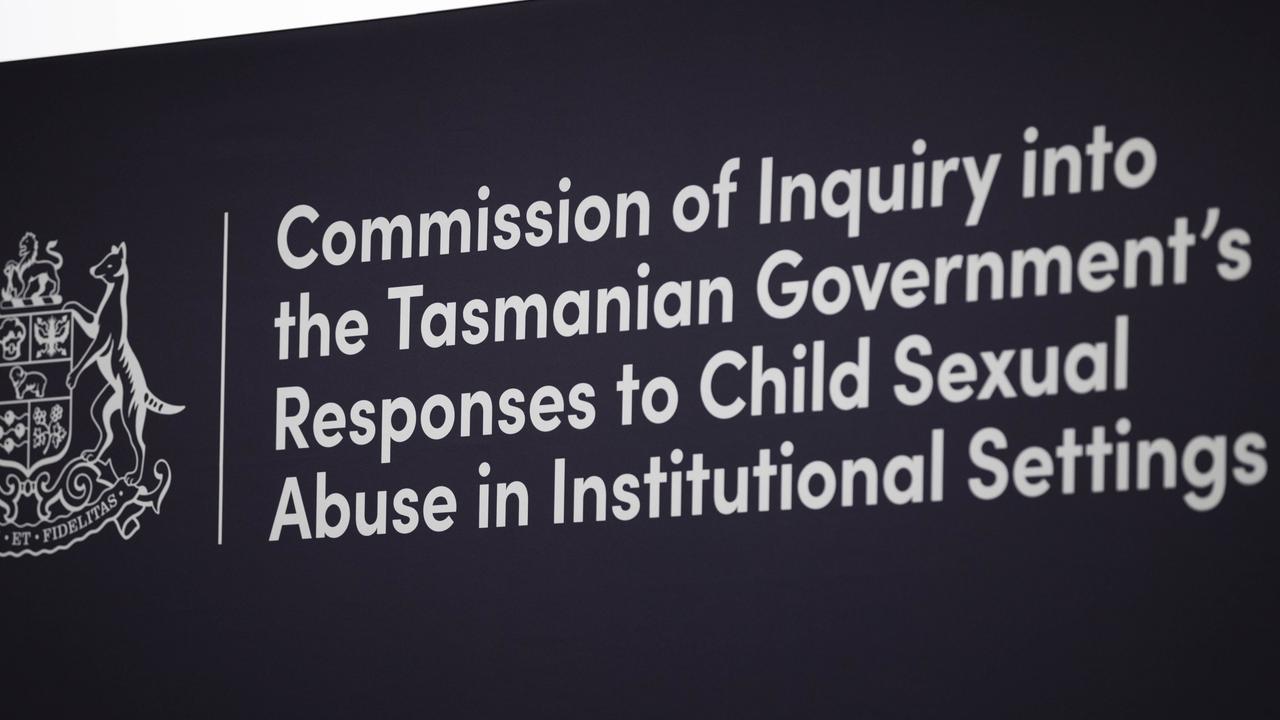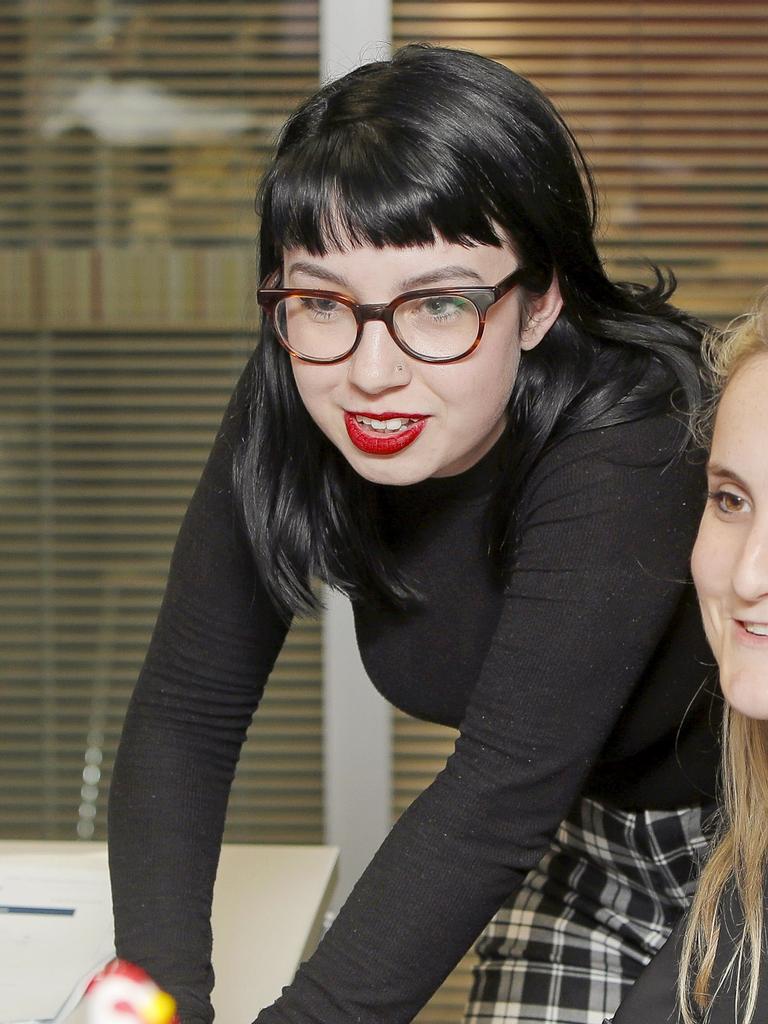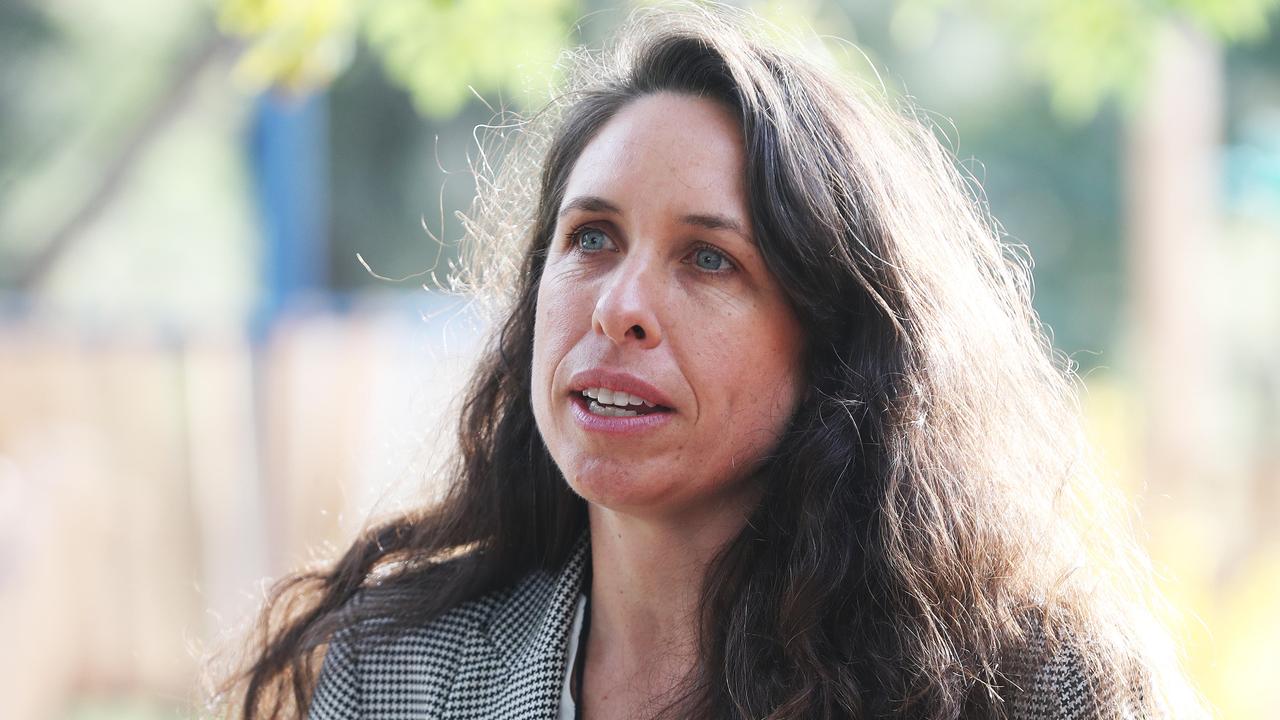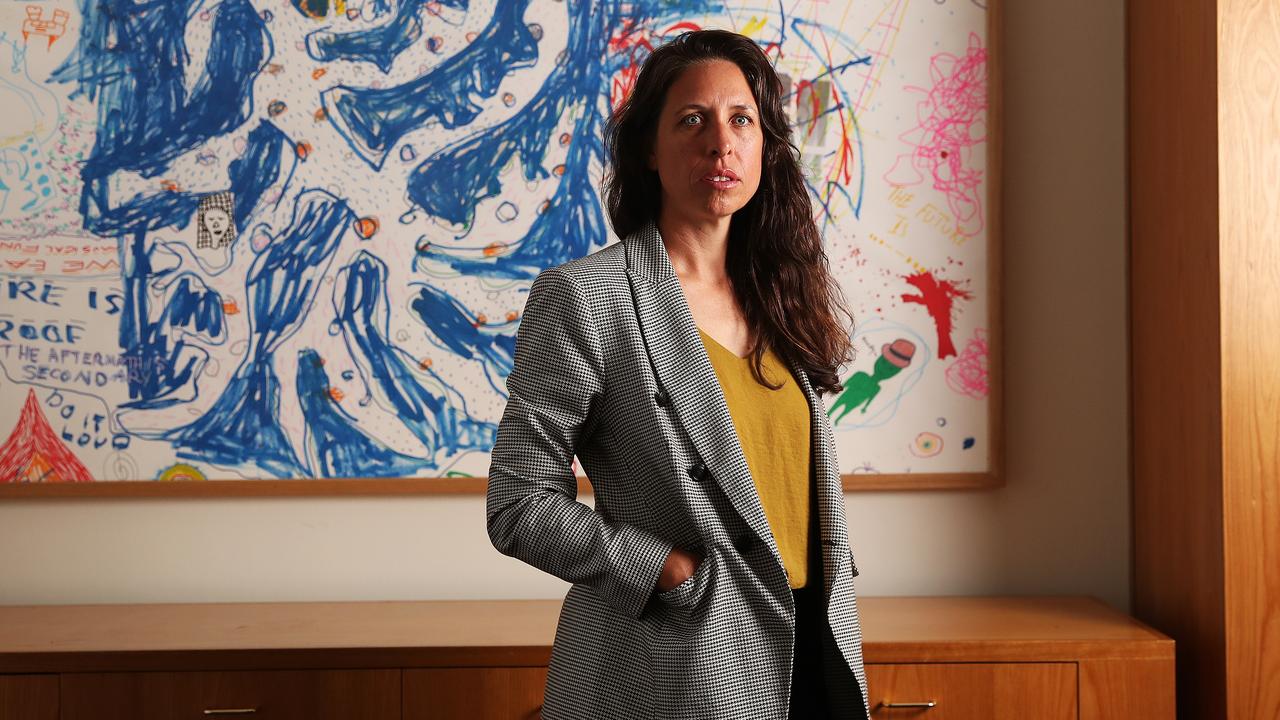Commission of Inquiry into child sexual abuse analysed
From the moment this commission of inquiry was announced, the public was warned the stories would be shocking and distressing. But what is also shocking and distressing is that the manifest failings of a broken system were known and little or nothing seems to have been done to address them. ANALYSIS>>>
From the first moment this commission of inquiry was announced, the Tasmanian public was warned the stories that would emerge would be shocking and distressing.
Stories of child abuse are always shocking and distressing.
But what is also shocking and distressing is that the manifest failings of a broken system were known and little or nothing seems to have been done to address them.
What has emerged from the first week of public hearings is an emphatic underscoring of what we always knew: matters of fact such as the understaffed and underfunded child protection system in Tasmania.
So many of these deficiencies were known to frontline staff, to their managers and heads of departments, to their unions, the public, the politicians, and to the media.
We have so far seen watchdogs apparently confused about their roles, mystified by the inadequacies of their governing legislation and wondering why nobody was coming to them with complaints.
But what we haven’t seen is someone in power identifying what was wrong — or taking responsibility for the manifest and multiple failings that let our children down.
Since 2018, Leanne McLean has been paid about $200,000 a year as the Commissioner for Children and Young People.
Giving evidence on Thursday she has complained about media coverage of Ashley Detention Centre being upsetting to the kids who were abused within its walls.
“It is often very, very difficult for them to see a place that, for much of their life may have been their home, portrayed sometimes in the way it is portrayed,” she told the commission.
She’s referring to an institution with a reputation for abuse so bad, that she eventually joined the calls for its closure.
Instead of loud and public advocacy on behalf of children, or a timely entry into the fight, or a call for a proper robust inquiry into this sorry mess — it was left in the laps of victim-survivors, their lawyers, the whistleblowers, and a handful of politicians and journalists.
There are many heroes to this story, but prominent among them is freelance journalist Camille Bianchi, whose podcast The Nurse drew together the threads of offending and systematic cover-up.
Ms Bianchi gave evidence on Thursday about the obstacles the government put in her path. Rather than being paid, she spent her own money fighting every step of the way to shine sunlight on our shame.
This Commission has now picked up the baton and will highlight many stories that will be shocking and distressing.
But equally, will it highlight the heroes: the astonishing strength of the victim-survivors, the doggedness of their advocates and the righteous anger of those who demanded change.
‘We are failing those children and we are failing those carers’
THE support provided to some carers looking after at-risk children was “woefully inadequate” in a care system afflicted by high staff turnover, massive caseloads, a lack of resources and unmet therapeutic need, a former state servant says.
An expert witness has told the Commission of Inquiry into the Tasmanian Government’s Responses to Child Sexual Abuse that aspects of Tasmania’s out-of-home care were those of a failing and abusive system that left some children at increased risk of harm.
The Commission is wrapping up its first week of public hearings in Hobart.
Therapeutic Specialist Sonya Enkelmann gave evidence about her role working for the Department of Communities Tasmania from 2017 to 2020.
She said her job in out-of-home care reform with children who had been abused or who were at risk of abuse was “a role that I absolutely loved”.
“I remember when I started the project, that I was told by a senior policy person that nothing would change and I was wasting my time … and they were right,” she said.
Ms Enkleman said in some cases, the system supposedly designed to help children was instead making things worse as the recommendations of prior inquiries were ignored.

“We are failing those children and we are failing those carers. And for the workers it’s equally frustrating because they know they can do better,” she said.
She said in her experience a difficult job was made even harder by a lack of staff and high turnover, and there were many children and carers who said that they had never saw a case manager.
That left those children at greater risk of harm.
“Who has eyes on some of these kids? If a child doesn’t have a good relationship with the carer if they don’t have a safe carer how do we know this child is safe? You know, so I don’t know how many children are safe,” she said.
“If it is the case that we’re not supporting our carers effectively and the child ends up having a breakdown in the home, or multiple breakdowns in the home, then we are as a system, magnifying those vulnerabilities to child sexual abuse to grooming behaviours.
“Because guess what, there are perpetrators out there that can pick a person a mile away, who has was going to be more amenable, to grooming, who has unmet needs, who is isolated, who doesn’t have a sense of being loved, who doesn’t have a sense of self-worth, you know, those sorts of things. So that is the worry that I have.”
She described the Department of Communities as being “very closed and defensive” and information about policies, procedures and structures were difficult to obtain and there was a lack of training for staff and support for carers.
“If you were a kinship carer or a foster carer attached to the department the level of support you were receiving was, I can only describe it as woefully inadequate,” she said.
“That’s no reflection on the out-of-home care workers who tend to be incredibly dedicated people and I have the utmost respect or them, but their caseloads were completely ridiculous, particularly in the south.”
She said that in some cases, the system intended to help children only made things worse.
“It’s what I think is an abusive system, it leads to harm on so many fronts, it is just frustrating,” she said.
The hearing continues.
Claims kids only removed from parent if they’re raped by them – May 5
A Social services boss has made an explosive claim – that children are only removed from a parent by Tasmania’s Child Safety Service if they have been raped by that parent.
The claims were later denied by a government spokesperson, who told the Mercury the claims were “not correct”.
On Thursday, day four of a child sexual abuse commission of inquiry, Tasmanian Council of Social Service manager of policy, Charlie Burton, said the “threshold” of child removal was rape by a parent.
He said the council’s members had regular interactions with Child Safety and the department overseeing Child Safety workers.
“Our members observe … that a combination of lack of staff training and high workloads means that there’s a very high threshold for reporting and responding to abuse,” Dr Burton said.
“A researcher who … has done a lot of work in the area of responses to unaccompanied homeless children … her observation is that the threshold for action or removal is being raped by a parent.
“That, most of us would agree, that threshold is just too high.”
A Communities Tasmania spokesperson denied the claims.
“It is not correct that the Child Safety Service will only intervene when serious harm has occurred, and nor is it correct that responses to concerns for the safety and wellbeing of children in out of home care are influenced in any way by workload,” they said.
“The type of response, and the immediacy of that response is determined through assessment relating to the individual child and their individual circumstances.”
But the TasCOSS CEO, Adrienne Picone, stood by Dr Burton’s evidence.
“We understand this is not government policy and that Child Safety has policies and practice guidelines that do not officially endorse this approach, however the evidence given today to the commission was provided in the context of an overloaded child safety system where decisions are having to be made that do not always keep children safe,” she said.
“This is one of the reasons we are having a commission of inquiry – to get to the bottom of system failures.”
‘Crazy hurdles’ hinder reporting on child sexual abuse
Two journalists covering child sexual abuse in Tasmania have revealed the roadblocks they have faced from a government culture of “general hostility” and “crazy hurdles” placed in the path of their work.
Camille Bianchi revealed the horrific extent of child sexual offending by Launceston General Hospital nurse, James Geoffrey Griffin, in her podcast launched in 2020, The Nurse.
Speaking at day four of Tasmania’s commission of inquiry into child sexual abuse, Bianchi said she had been told by some older members of the community that she’d been “doing harm” by reporting on Griffin and giving his victims – who felt that justice hadn’t been done – a voice.
She also said she was shocked by the difficulty in dealing with the Tasmanian government when seeking comment or information.
“I was astounded by how combative it felt,” she said.
“I came away from a lot of this with the sense like I was going crazy and it was this back-and-forth that got more and more bizarre.”
In contrast, Bianchi said dealing with similar government agencies interstate had been a different experience.
“It felt professional and it didn’t feel like a game,” she said.
ABC journalist Emily Baker said many of her sources were afraid to come forward to the media for fear of repercussions.

“I think in a small place like Tasmania, there’s a fear about personal repercussions, professional repercussions, what the broader community might think of them, that they won’t be believed … that nothing will change,” she said.
Baker said the Tasmanian government had also often ignored her requests for information or comment or used other methods to avoid answering.
She said in response to one question of former premier Peter Gutwein, he responded: “Well you might want to talk down Tasmania, Emily, but I don’t”.
“I think what hasn’t changed is a general hostility towards the media. Obstruction of even the most basic requests, crazy hurdles thrown in your way for no reason or completely ignored,” she said.
“We’re fobbed around, rebuffed.”
Baker also commented on the inefficiency of systems within Tasmania to deal with child sexual abuse allegations.
“I would love for these institutions to work,” she said.
The pair also commented on the culture of secrecy and cover-up within the Tasmanian government, which Bianchi said Mercury journalist David Killick “perfectly” summed up in a November 2020 opinion piece.
The commission of inquiry was announced by Mr Gutwein two days later.
Griffin died by suicide in 2019 after he was charged with a number of child sexual abuse offences.
‘Complex system’: Inquiry reveals Tasmania’s confusing process
A trio of senior officials responsible for Tasmania’s various watchdog agencies have revealed a confusing and complex system for reporting child abuse.
Leanne McLean, the Commissioner for Children and Young People, explained her office didn’t have a complaint handling function or a “red flag” system for referring on complaints.
Speaking at day four of the commission of inquiry into the Tasmanian government’s responses to child sexual abuse in institutional settings, Commissioner McLean said she couldn’t advocate on individual matters other than children in detention – and even then, she couldn’t investigate a decision made about them.
Commission president Marcia Neave asked, hypothetically, what guidance a mother of a child at the Ashley Youth Detention Centre would get if they were concerned about their child’s mental health if they’d been locked up for long periods in “seclusion”.
Commissioner McLean said that mother would be referred on to Ombudsman Richard Connock – who himself said usually complaints needed to be lodged by the person who had been individually aggrieved by the situation.

Michael Easton, CEO of the Integrity Commission, said there was no limitation on who could complain to that agency, but said the case would need to be assessed as to whether his office was best placed to handle it.
“Would you each agree with me that this is complex system?” counsel assisting the commission, Elizabeth Bennett SC, asked.
“Is it a difficult system for lay people to navigate?”
Each of the officials agreed it was.
The trio also revealed what seemed to be very low reporting of child sexual abuse to their offices.
Commissioner McLean said while her office didn’t have a complaint handling function, she could refer people “to the appropriate places to raise it”
Mr Connock said he received “very few, if any” reports of child sexual abuse.
“I don’t know why we’re not receiving complaints,” he said.
Ms Bennett asked if “low levels of reports might indicate barriers to reporting”.

Mr Easton said his office also received few child sexual abuse complaints.
“Since 2017, we’ve received one or two notifications per year involving some form of child sexual abuse, including grooming,” he said.
“But in 2020, suddenly it’s nine and then 2021, it’s 24. So it can only be that the commission of inquiry is in existence and suddenly we’re getting those notifications.”
Mr Connock also agreed the amount of state service “whistleblowers” in Tasmania was historically low – and couldn’t answer whether the reason was “cultural reluctance to call out misbehaviour”.
“I don’t know what’s going on there,” he said.
Originally published as Commission of Inquiry into child sexual abuse analysed






